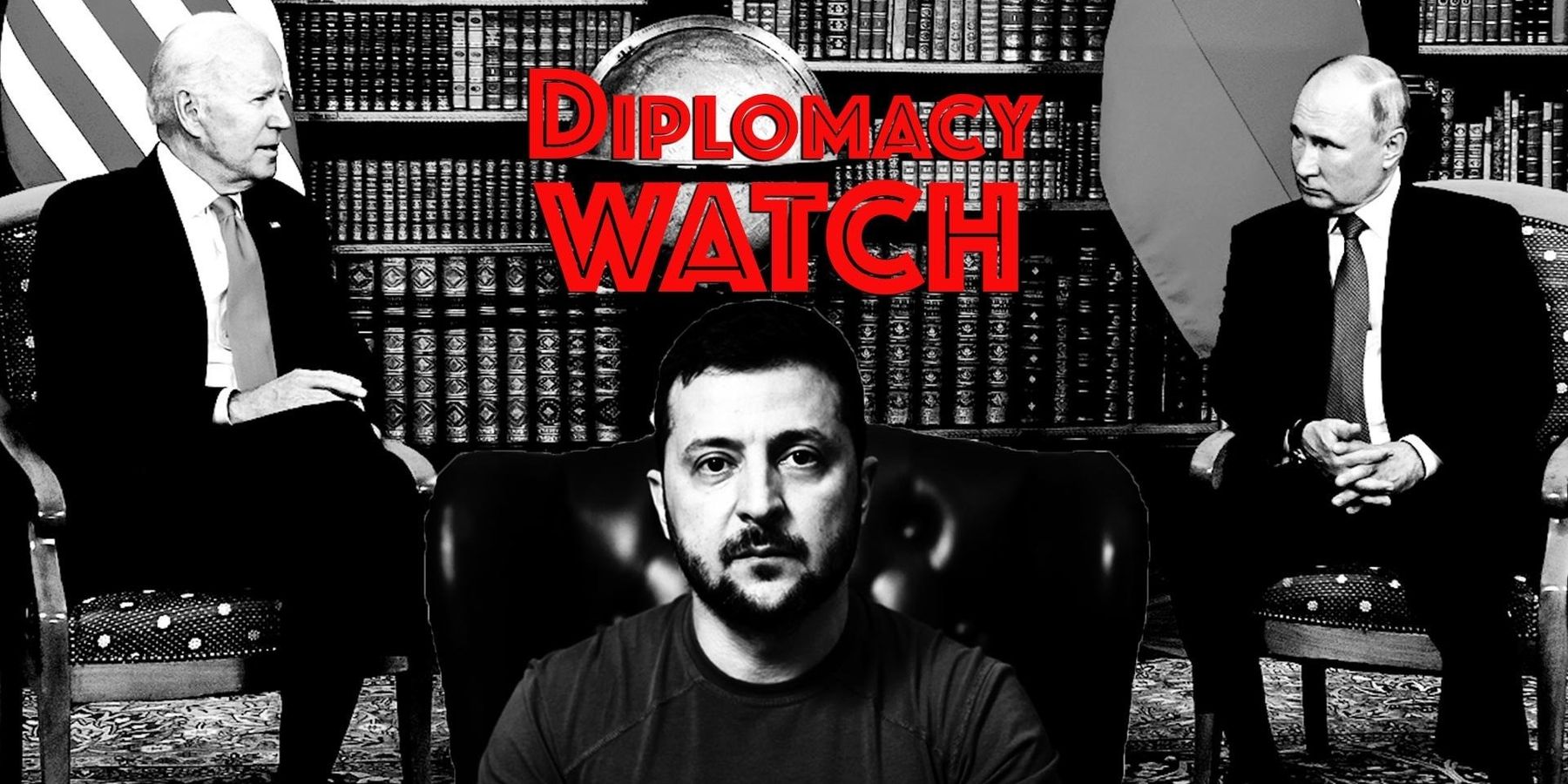Donald Trump’s nominee for U.S. secretary of state said this week that he wants the war between Ukraine and Russia to end.
“It is important for everyone to be realistic: there will have to be concessions made by the Russian Federation, but also by Ukrainians,” said Sen. Marco Rubio (R-Fla.) during his Senate confirmation hearing on Wednesday. “There is no way Russia takes all of Ukraine.”
He added that “there's no way Ukraine is also going to push these people all the way back to where they were on the eve of the invasion.”
He also said sending American aid to Ukraine “for however long it takes” is “not a realistic or prudent position,” sentiment that echoes what Trump has said.
Trump had previously promised to end the conflict within 24 hours of taking office, but his incoming Ukraine envoy, Keith Kellogg, later amended that timeline to 100 days.
The establishment consensus in the U.S. and Europe on the Ukraine war has slowly evolved as the conflict moves increasingly toward Russia’s favor.
“We need a cease-fire line, and of course ideally this (the Ukrainian part) should include all areas currently under Russian control. But we see that this may not be realistically achievable in the immediate future,” former NATO Secretary General Jens Stoltenberg said in December. He added, “if the cease-fire line means that Russia continues to control all occupied territories, this does not mean that Ukraine has to give up the territory forever.”
Ukrainian officials have also reportedly been discussing the option of allowing for a ceasefire, with Russia still controlling part of Ukraine, although not officially or legally. Ukrainian President Volodomyr Zelenskyy even admitted, "if we want to stop the hot phase of the war, we should take under NATO umbrella the territory of Ukraine that we have under our control. That’s what we need to do fast. And then Ukraine can get back the other part of its territory diplomatically.”
During his hearing this week, Rubio emphasized this growing emphasis on diplomacy over a complete Ukrainian victory, saying that ending the war will not “be an easy endeavor… but it's going to require bold diplomacy, and my hope is that it can begin with some ceasefire.”
“Rubio's remarks reflect a pragmatic, constructive approach toward ending the Ukraine war — one that, encouragingly, the administration seems intent on institutionalizing throughout the foreign policy/national security bureaucracy,” said Quincy Institute research fellow Mark Episkopos. “The upcoming peace talks will demand an all hands on deck approach across the agencies if they are to succeed, and Rubio, as the nation's chief diplomat, is poised to play a major role in this difficult but necessary process.”
In other Ukraine war news this week:
Moscow accused Washington of assisting in attempting to sabotage the TurkStream pipeline, the only remaining pipeline that brings Russian gas into Europe. Russian Spokesperson Dmitry Peskov called the attack “energy terrorism”
The attack was thwarted, according to Al Jazeera, as the pipeline only suffered minor damage. Ukraine has thus far rejected claims of its involvement in the attempted attack.
This comes at a time when Ukraine has halted gas transits from Russia to Europe sparking a war of words and potentially an energy crisis this winter, wrote Stavroula Pabst in Responsible Statecraft this week. Despite claims from Zelenskyy that the gas transit halt was “one of Moscow’s greatest defeats,” the rest of Europe seems to be bearing the brunt of the consequences, facing high energy prices and outages in some countries.
The New York Times reported on Monday that Ukraine launched a large drone barrage deep into Russian territory. According to the Russian Defense Ministry, more than 140 drones were launched from Ukraine, and U.S. and UK-made ATACMS and Storm Shadow missiles were included in the attack. The strikes were in three Russian regions, with some hitting over 700 miles into Russian territory. Industrial and military sites were reportedly damaged, with no reported casualties.
Russia responded the next day by launching dozens of missiles at Ukraine’s energy grid. President Zelenskyy responded to the attacks on social media, “It’s the middle of winter, and the target for the Russians remains unchanged: our energy infrastructure. Among their objectives were gas and energy facilities that sustain normal life for our people.”
There was reported damage but no casualties.
United Kingdom Prime Minister Kier Starmer says that he will deliver new mobile air defense systems and “more support to Ukraine than ever before,” according to The Guardian. This announcement is part of a 100-year partnership agreement between the two nations, meant to secure previously promised aid in addition to further military assistance under the shadow of Trump’s return to the White House. The deal, which also includes health care and agriculture partnerships, must be approved by the British parliament in the coming weeks.
From this week’s State Department briefing on 01/15
A journalist asked spokesperson Matthew Miller if the United States was considering designating Russia as a state sponsor of terror. Miller indicated that the U.S. had determined that the sanctions already in place were more effective. “If you look at the combined regime that we have put into place – sanctions and export controls – we determined that that would have more of an impact than a state sponsor of terrorism designation.”
- Trump eyeing hawks and neocons for top foreign policy/NatSec roles ›
- Rubio pushes ‘bold diplomacy’ for Ukraine, confrontation with China ›
















